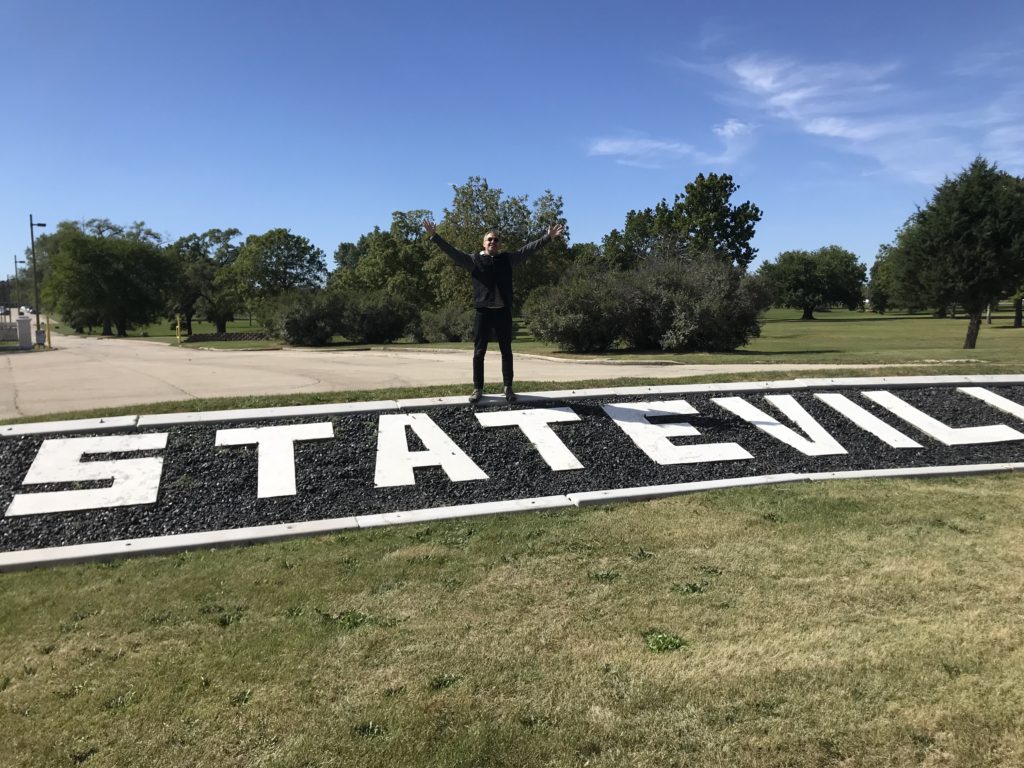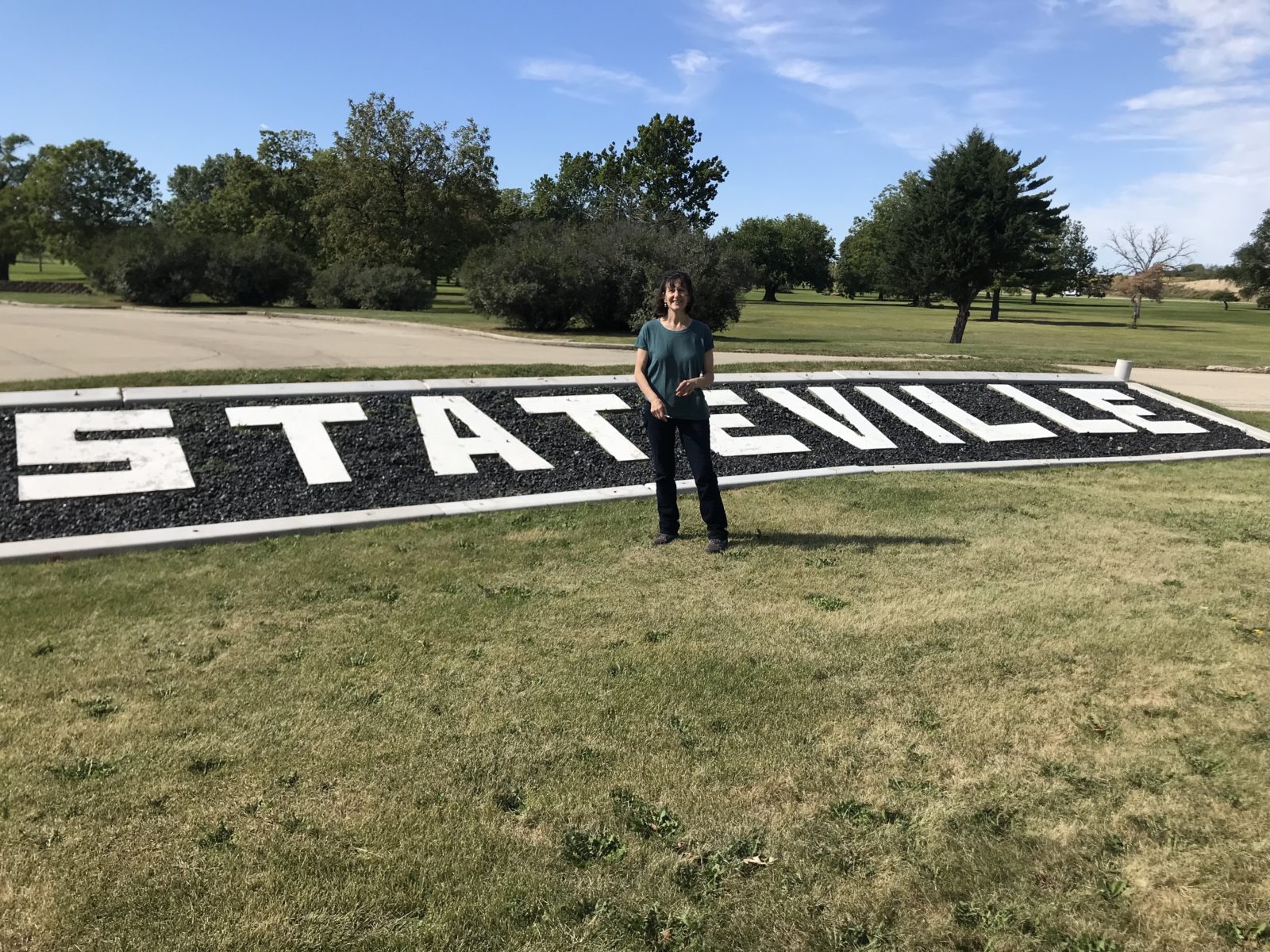You never know, growing up on McCraren Road, who’s going to rise to the title of biggest badass.
Turns out, it wasn’t the precocious know-it-all who went to law school and now spends quiet evenings bathing in legal fees, it wasn’t the snarky drug dealer who went into trucking and now spends the buy-out money funding vanity projects for Elton John, it wasn’t the non-conformist cousin who chose to be a stay-at-home dad and is now considering getting back into HVAC installations, even though I admire his life choices immensely.
The biggest badass I know got her PHD in philosophy. As a career, Shari Stone-Mediatore teaches college kids in Ohio how to think for themselves, but her side-gig is battling mass incarceration.
Yesterday we drove to Stateville, a maximum security prison 1 hour and 12 minutes west of Chicago. We had lunch with Joseph Dole, co-founder and policy director of Parole Illinois.
In a room matching the bleak vibe of a DMV, down the stairs and to the right from 2 iron gated doors, there’s a row of vending machines and men in what resembles pale blue scrubs, waiting.
Joe was leaving as we walked down the steps. “I’ve been here an hour,” he said. I don’t like to keep anyone on the hook, let alone someone who spends their entire life waiting…
For Clemency
For Parole
For A Second Chance
I made sure to fill my pockets with dollar bills but the vending machines only took a card that Shari had already filled. She was gracious enough to act as a food runner, getting Joe what he ordered while I sat there, a lunch guest in someone else’s oppression.
“Let me know if I left it in the microwave long enough,” Shari said. “Let me know if it’s hot.”
“It’s fine,” Joe said. “This is the best food I’ve had in months and it’s gas station food.”
He ate chicken nuggets. He ate Doritos. He drank 2 bottles of apple juice. He ate a meat calzone.
Standing in the Visitor Center, waiting for the guards to process our paperwork and check our ID’s so we could take off our shoes and be patted down before entering Stateville, to cut the tension we had a light hearted conversation about Plato.
Shari told me about “The Apology,” a dialog recreating the trial of Socrates. “He opens by apologizing for not being as eloquent as the prosecution but then goes on to be the embodiment of eloquence. It’s not really an apology,” Shari said. “It’s an indictment.”
“Does he win?” I asked. “Does Socrates beat the system?”
“They kill him,” she said.
I looked at the prison wall overtaking the horizon and did the only thing I knew how to do, protect my good mood by reaching for meaning.
“Is the end ironic-up, in that he loses his life but stands for something bigger,” I asked. “Or is the end ironic-down, in that he dies and it doesn’t mean a goddamn thing.”
“Happily ever after,” Shari said, “it’s not.”

